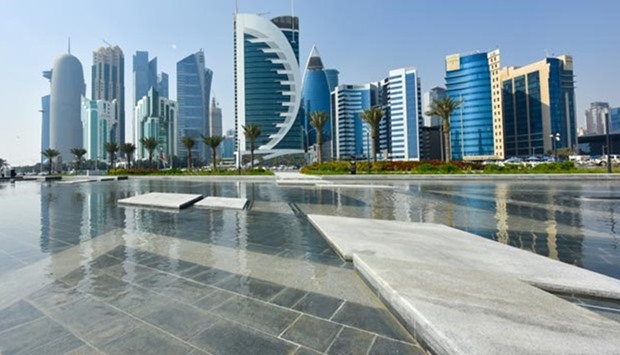Qatar, whose budget will turn back to surplus in 2017, will remain in one of the strongest fiscal positions in the world over the next decade and continue to hold massive financial buffers through its sovereign wealth fund (SWF), according to BMI.
"Qatar's sovereign position will remain one of the strongest in the world," BMI said, forecasting that the budget surplus is expected to be QR5.3bn in 2017, which then would expand to QR13.9bn in 2018, QR20.4bn in 2019, QR27.9bn in 2020, QR39.5bn in 2021, QR53.3bn in 2022, QR68bn in 2023, QR83.2bn in 2024 and QR99.2bn in 2025.
Having posted large budget surpluses between 2010 and 2015 on the back of massive hydrocarbon revenues, BMI said it allowed the country to set up a SWF ‘Qatar Investment Authority’, which held $335bn (215% of gross domestic product or GDP) of assets at the end of 2015, equivalent to five times the total stock of public debt issued by the Qatari government.
As a result, Qatar enjoys the best ratings in the Middle East (along with the UAE and Kuwait), with Fitch rating it AA (outlook stable), Moody's Aa2 (outlook negative) and S&P AA (outlook stable).
Total government debt as a proportion to GDP is expected to be 47.4% this year, which then is slated to progressively fall to 42.3% in 2017, 40.4% in 2018, 39.8% in 2019 and 38.4% in 2020. Thereafter, it is forecast to increase to 39.1% in 2021 and 2022, 39.5% in 2023, 40.2% in 2024 and 41.3% in 2025.
Similar to other hydrocarbon-exporting countries, Qatar's sovereign outlook deteriorated on the back of the slump in global oil prices that began in the summer of 2014.
Oil and gas revenues accounted for close to 60% of total revenues in 2014 (the share fell to 49% in 2015 as oil prices plummeted) and will remain the government's largest income stream over the coming years.
"In response, we believe that Doha will increase non-oil revenues throughout the next decade, raising taxes and fees for the expatriate community in particular. In addition, we expect a GCC-wide value added tax to be implemented by 2018. Despite these efforts, we forecast revenues to return to their pre-oil prices lump level only in 2022," BMI said.
As a result, the Qatari government will continue to rationalise spending over the coming decade, it said, adding this will result in slower government expenditure growth, but not in a decrease in total spending.
In particular, the Qatari government will continue to fund infrastructure projects for the 2022 FIFA World Cup. Qatar will further reduce energy, water and food subsidies, in particular for expatriates, according to the report.
The latter will bear the brunt of the fiscal consolidation reforms, given that the Qatari government will attempt to shield its citizens as much as possible from austerity measures to secure political stability, BMI said.
Expecting the wage bill to remain elevated throughout the next decade, as the Qatari government will continue to offer well-paid public jobs to transfer hydrocarbon wealth to its citizens, it said salaries and wages constituted 29.8% of revenue in 2014-15.

Qatar enjoys the best ratings in the Middle East.

